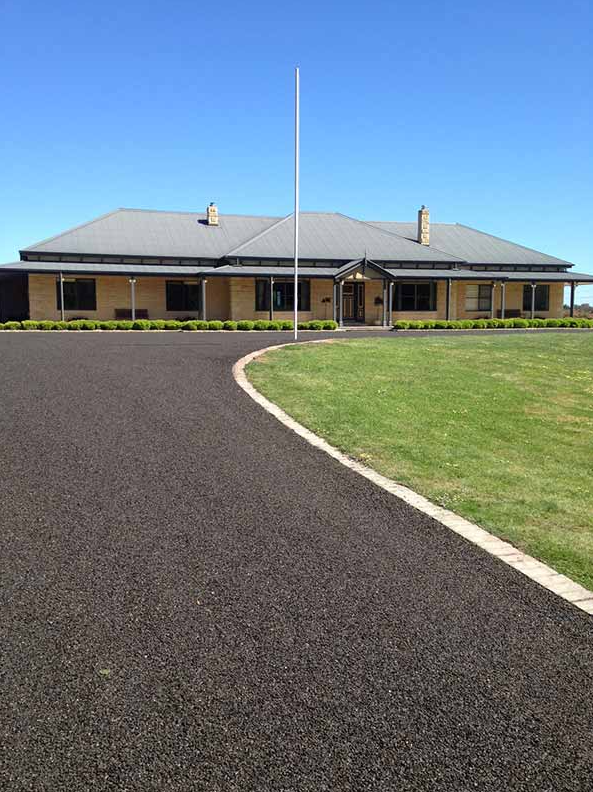In today’s world, road noise is a growing concern—not just for councils and developers, but for homeowners, business owners, and road users alike. Whether it’s near a residential area, school zone, or commercial precinct, excessive traffic noise can affect wellbeing, productivity, and property value. Fortunately, one proven method of reducing road noise is through the careful design and installation of asphalt surfaces.
At Little River Road Tech, we specialise in asphalt and bitumen surfacing that not only meets structural performance requirements but also helps mitigate environmental noise. Here’s how asphalt plays a critical role in making roads quieter and more comfortable for everyone.
What Causes Road Noise?
Road noise is primarily caused by the interaction between vehicle tyres and the pavement surface. As tyres roll and flex over the road, they generate:
- Air displacement noise in the tyre tread
- Vibration noise from irregular or rough surfaces
- Impact noise from joins, cracks, or potholes
- Engine and mechanical noise, which can be amplified by poor surface design
By improving the quality and type of surface material, it is possible to reduce the tyre-pavement noise component significantly.
How Asphalt Reduces Road Noise
Asphalt surfacing can be engineered to reduce noise through texture, flexibility, and material design. Here’s how it works:
Smoother Surface Texture
Dense-graded asphalt provides a smoother, more consistent surface than many other materials, such as chip seal or coarse concrete.
- Reduces vibration and tyre impact noise
- Minimises the sound produced by uneven wear or surface irregularities
- Creates a quieter ride for all vehicle types
Porous Asphalt Options
In areas where noise reduction is a key priority, porous asphalt is an advanced solution. This material allows air and water to drain through the surface, reducing the sound caused by air compression between the tyre and the road.
- Helps dissipate sound energy
- Particularly effective in residential areas and high-speed roads
- Often used in noise-sensitive infrastructure projects
Noise Absorption and Deflection
Asphalt’s composition includes aggregates bound together with bitumen, creating a flexible but strong surface. This allows it to absorb some vibration and deflect less noise compared to rigid materials like concrete.
- Lower surface resonance under vehicle loads
- Reduces echo and noise travel
- Supports quieter environments in urban and regional settings
Fewer Expansion Joints
Unlike concrete, asphalt does not require expansion joints, which are often a source of rhythmic bumping and rattling for vehicles.
- Smoother transitions between road sections
- Reduced vehicle-induced impact noise
- Enhanced driving comfort
Real-World Applications in Little River and Surrounds
In regional areas like Little River, VIC, roadways often pass through a mix of residential zones, open farmland, and light industrial precincts. The use of asphalt surfacing provides multiple benefits:
- Reduces road noise near homes and schools
- Improves comfort on rural access roads and driveways
- Supports local councils aiming to minimise environmental disruption
- Enhances transport routes through quiet rural communities
At Little River Road Tech, we deliver surfacing solutions that are engineered for the specific needs of local roads, ensuring noise reduction is balanced with durability and long-term performance.
Our Asphalt Installation Process
We approach every surfacing project with attention to design and detail, including:
Site Analysis and Planning
We evaluate existing road conditions, traffic patterns, and environmental sensitivities to determine the ideal asphalt mix and thickness.
Material Selection
We use high-quality bitumen and aggregates tailored to performance and noise-reduction goals.
Precision Laying and Compaction
Our team applies asphalt with precision to achieve a consistent, smooth finish—essential for reducing tyre-generated noise.
Finishing and Quality Assurance
We check for surface evenness, proper drainage, and compliance with relevant standards to ensure long-term noise and wear performance.
Why Choose Little River Road Tech?
- Proven experience in surfacing projects across Little River and regional Victoria
- Advanced material selection for optimised sound and surface performance
- Reliable team using modern equipment and techniques
- Solutions tailored for council, commercial, and private applications
We provide honest advice, professional workmanship, and surfaces built for real-world use.
Conclusion
Reducing road noise isn’t just about traffic volume—it’s also about surface quality. With the right materials and methods, asphalt surfacing can significantly reduce the sound impact of roads and driveways, improving comfort and liveability for nearby residents and users alike.
If you’re planning a new road, driveway, or loading area in Little River, VIC, and want to explore quiet, high-performance surfacing options, contact Little River Road Tech. Our expert team will help you design and deliver a durable, low-noise asphalt solution tailored to your needs.
Call us on: 03 4159 2883
Click here to find out more about Little River Road Tech
Click here to complete our contact form and see how we can help with your road needs.

